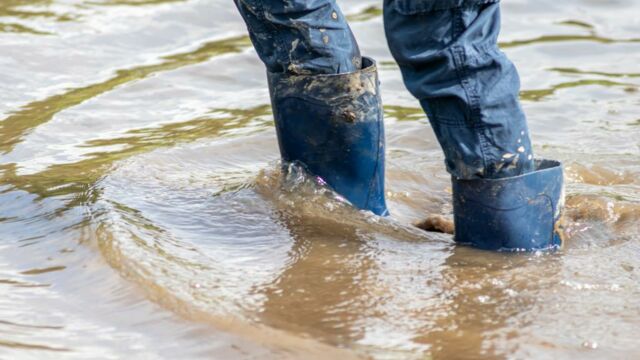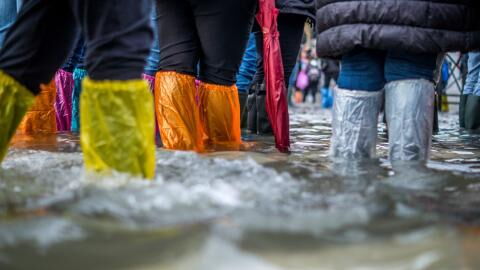From heat waves to quite literal waves, British weather sure is making headlines. The MET Office issued yellow thunderstorm warnings yesterday in England and Wales, with the South of England still at risk today.
Discover our latest podcast
John Curtin, executive director of operations at the Environment Agency called the weather paradox a ‘twilight zone of having both flood and draught warnings’, in The Guardian.
Think the floods will help with draught? Think again. Dry spells cause soil to solidify into a concrete-like state, meaning it is useless to soak up excessive amounts water. The surface runoff will, however, pose a danger to many people and properties across the country.
A ‘danger to life’
In addition to causing travel disruptionsand potential power cuts, the MET Office warned that the downpours could cause a ‘danger to life’ if caught in fast-flowing water.

Thousandsof properties across the UK have already been affected, and over 3 million homes are susceptible to damage in England alone, estimates the Environment Agency.
The areas at highest risk are Cornwall, Devon, and Somerset, which were given an amber thunderstorm alert today. South London, Surrey, Derbyshire, Nottinghamshire, Leicestershire and Norfolk received yellow thunderstorm alerts.
How to prepare if you’re affected
If you’re in an affected area, do not drive. According to the Environment Agency’s flood duty manager, Stefan Laeger:
We urge people not to drive though flood water - it is often deeper than it looks and just 30cm of flowing water is enough to float your car.
Forecasters also recommend storing your valuable items and important documents in high places if you reside in a low-lying home. Even better? Pack a ‘grab bag’ in case of evacuation. According to The Scottish Sun, residents in affected areas have been told to 'be ready' to leave at any time.
As the showers start to subside, the best thing you can do is stay informed and follow MET Office advice. Stay safe!
Read more:
⋙ Potential heatwaves predicted this summer, here's what you need to know
⋙ Storm Franklin: Why are there so many storms in the UK right now?
⋙ Sahara dust storm: Here's how it can affect your health and how you can protect yourself















